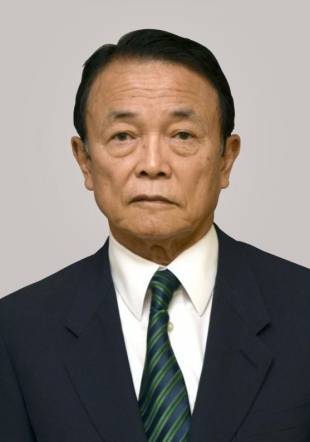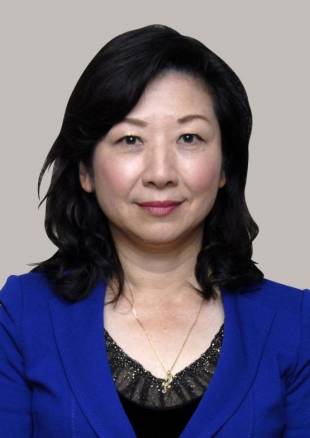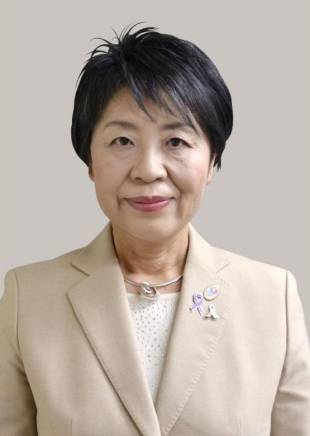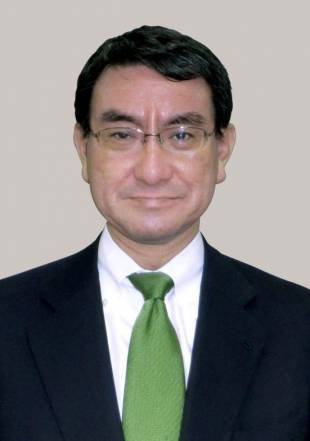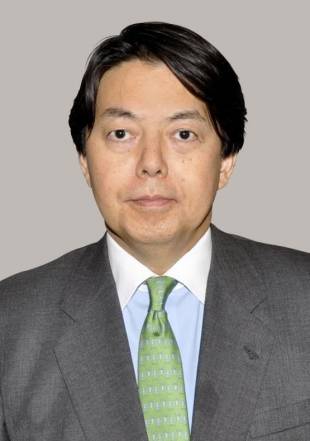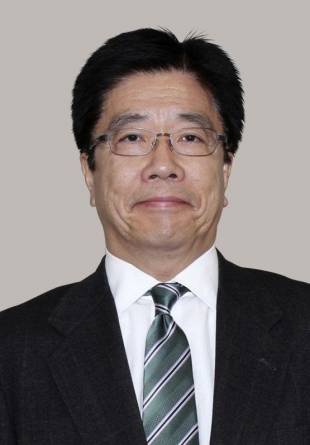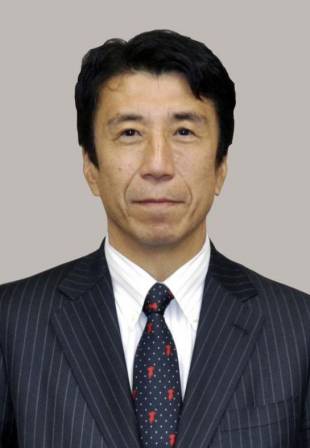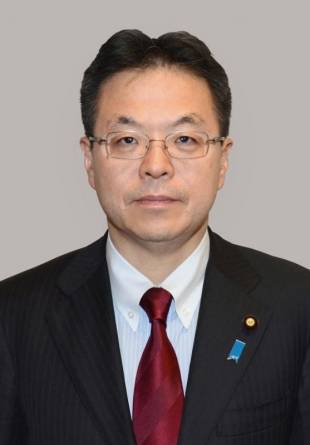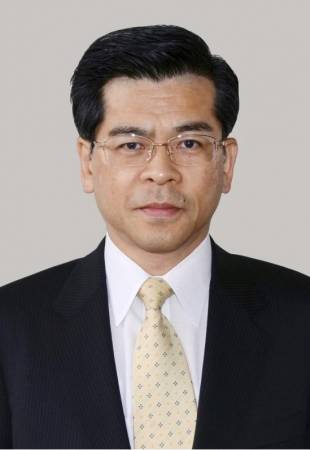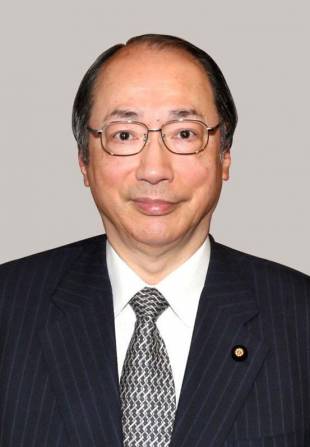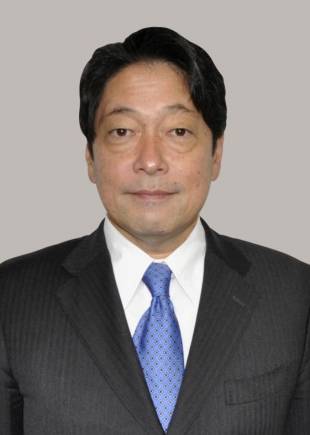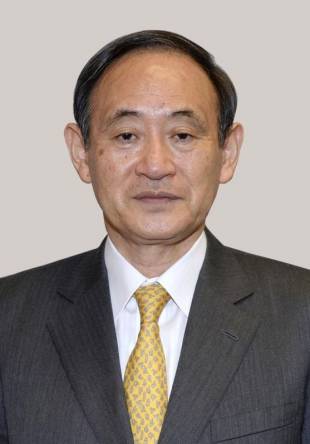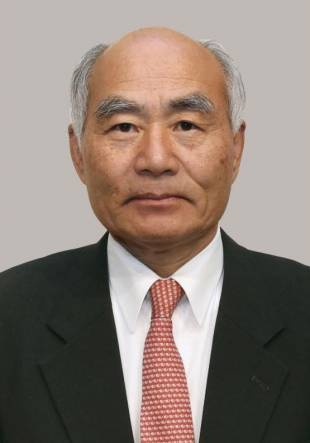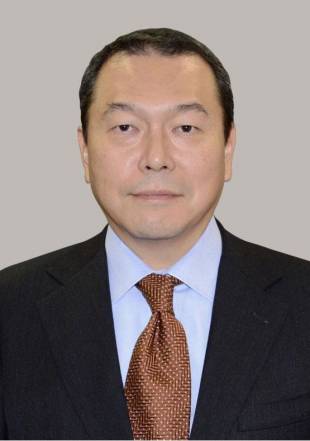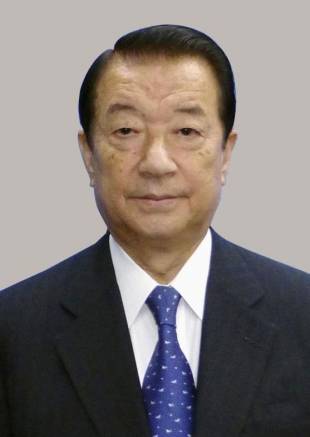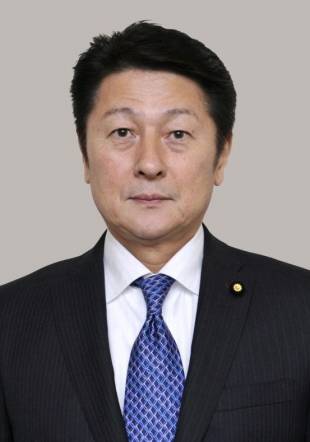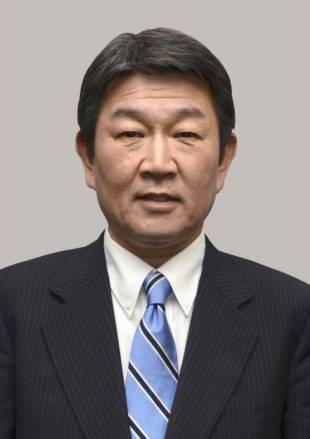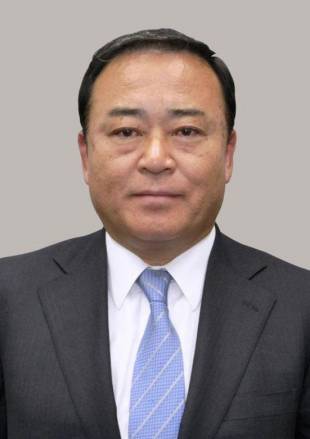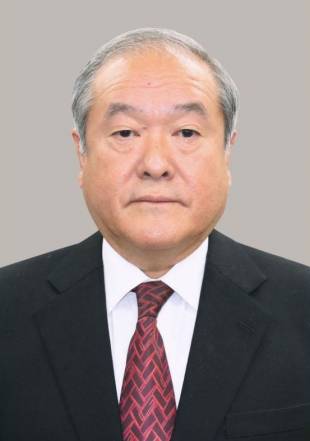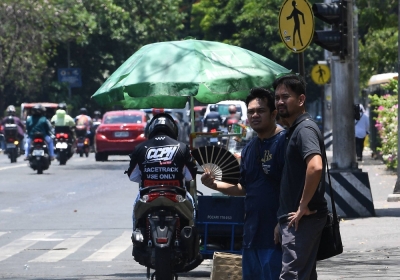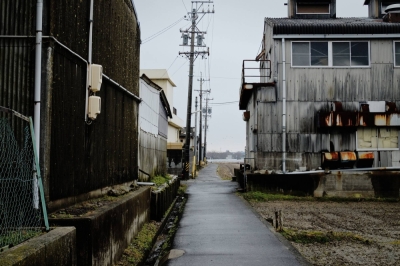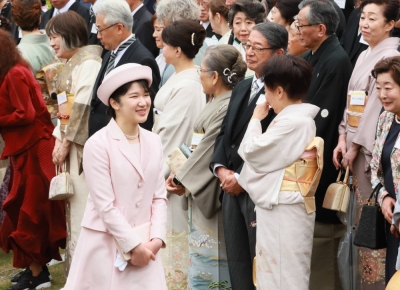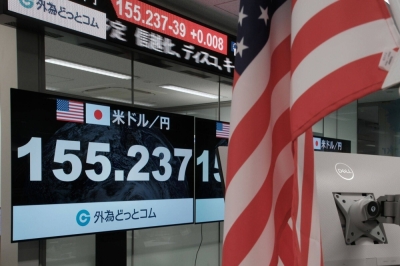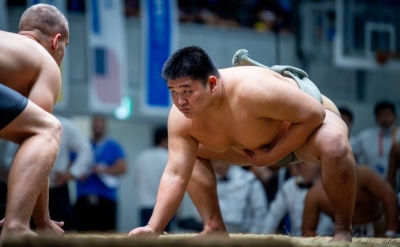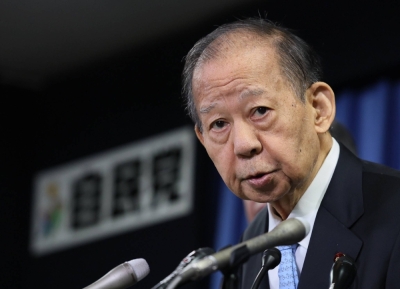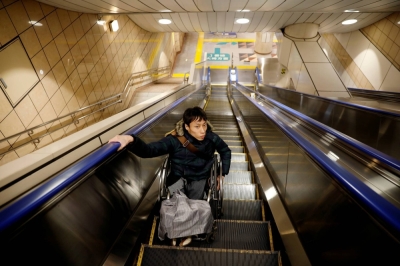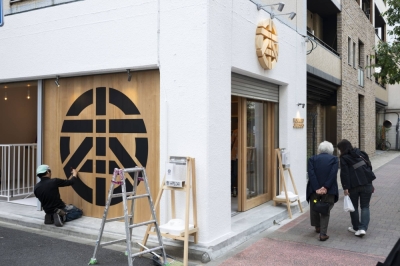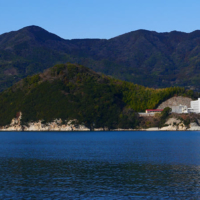Abe Cabinet (Formed on November 1, 2017)
| Prime Minister | Shinzo Abe |
| Deputy prime minister, finance minister, minister of state for financial services, overcoming deflation | Taro Aso |
| Internal affairs and communications minister, minister in charge of women’s empowerment | Seiko Noda |
| Justice minister | Yoko Kamikawa |
| Foreign minister | Taro Kono |
| Education, culture, sports, science and technology minister, minister in charge of education reform | Yoshimasa Hayashi |
| Health, labor and welfare minister, minister for working-style reform, minister in charge of the abduction issue | Katsunobu Kato |
| Agriculture, forestry and fisheries minister | Ken Saito |
| Economy, trade and industry minister, minister of state for Nuclear Damage Compensation and Decommissioning Facilitation Corp. | Hiroshige Seko |
| Land, infrastructure, transport and tourism minister, minister in charge of water cycle policy | Keiichi Ishii |
| Environment minister, minister of state for nuclear emergency preparedness | Masaharu Nakagawa |
| Defense minister | Itsunori Onodera |
| Chief Cabinet secretary, minister in charge of alleviating the burden of bases in Okinawa | Yoshihide Suga |
| Reconstruction minister, minister in charge of revival from the nuclear accident at Fukushima | Masayoshi Yoshino |
| National Public Safety Commission chairman, minister of state for disaster management | Hachiro Okonogi |
| Minister of state for Okinawa and Northern Territories affairs, consumer affairs and food safety, ocean policy and territorial issues | Tetsuma Esaki |
| Minister for promoting dynamic engagement of all citizens, strategy on Cool Japan, science and technology policy, space policy | Masaji Matsuyama |
| Minister in charge of economic revitalization, minister for human resources development, total reform of social security and tax, minister of state for economic and fiscal policy | Toshimitsu Motegi |
| Minister of state for regional revitalization, minister in charge of administrative reform | Hiroshi Kajiyama |
| Minister in charge of the Tokyo Olympic and Paralympic Games | Shunichi Suzuki |
| Deputy chief Cabinet secretaries | Yasutoshi Nishimura
Kotaro Nogami Kazuhiro Sugita |
| Director general, Cabinet Legislation Bureau | Yusuke Yokobatake |
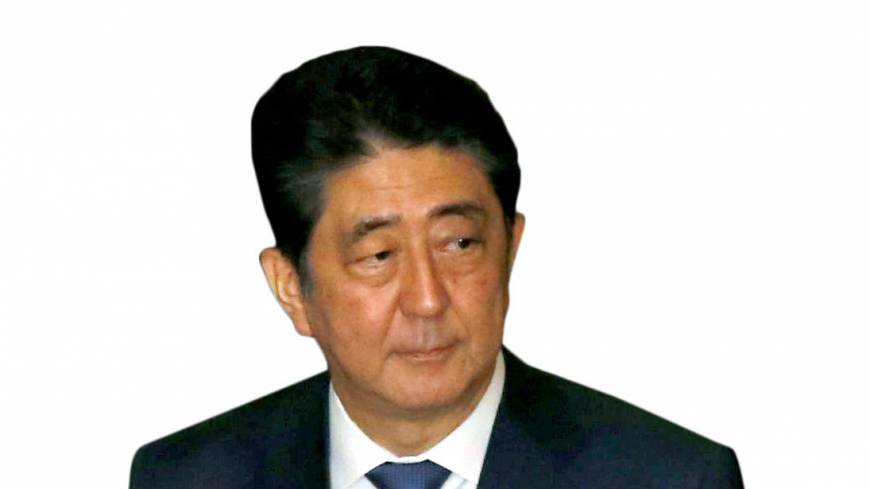
Prime Minister
Shinzo Abe
Date of birth: Sept. 21, 1954
Party: LDP
Electoral district: Lower House; Yamaguchi No. 4 (ninth term)
DEPUTY PRIME MINISTER; FINANCE MINISTER
Taro Aso
Date of birth: Sept. 20, 1940
Party: LDP
Electoral district: Lower House; Fukuoka No. 8 (13th term)
A longtime ally of Prime Minister Shinzo Abe, Aso retains the leader’s strong trust in the often outspoken politician.
Aso has been in his post since December 2012, when Abe started his second stint as prime minster. Abe is said to consult Aso before making important political decisions.
Aso, who served as prime minister from 2008 to 2009 and heads the second-largest faction in the LDP, is seen as a potentially key figure in the post-Abe era. His faction merged with another last month and now boasts 59 members.
Aso is the grandson of late Prime Minister Shigeru Yoshida. He led a major conglomerate in Fukuoka before his election to the Lower House in 1979.
INTERNAL AFFAIRS AND COMMUNICATIONS MINISTER
Seiko Noda
Date of birth: Sept. 3, 1960
Party: LDP
Electoral district: Lower House; Gifu No. 1 (ninth term)
Noda, a prominent icon among female politicians and a working mother, returned to the Cabinet in August after an eight-year hiatus.
The former chairwoman of the LDP’s General Council has voiced an interest in challenging Prime Minister Shinzo Abe, who doubles as LDP president, next year.
Noda gave birth to a boy at the age of 50 after in vitro fertilization in the United States. As her son is developmentally disabled, she has worked to raise public awareness of the issue. Noda also supports the right of married women to use their maiden names.
Noda was appointed postal minister in 1998 at 37, becoming the youngest Cabinet member in the postwar era, a record broken by Yuko Obuchi in 2008.
JUSTICE MINISTER
Yoko Kamikawa
Date of birth: March 1, 1953
Party: LDP
Electoral district: Lower House; Shizuoka No. 1 (sixth term)
Kamikawa has been reinstated as justice minister, having assumed the position from 2014 to 2015.
During her stint in the post, Kamikawa took a relatively low-key approach, following precedent in controversial policy areas such as hate speech and the death penalty.
At the outset of her previous stint, Kamikawa suggested she will uphold Japan’s adherence to capital punishment by saying she will act “within the current legal framework.”
On her website, Kamikawa says her experience as a graduate student at Harvard University gave her a foreign perspective on Japan, which eventually made her want to enter politics to help better the nation.
Kamikawa has two daughters.
FOREIGN MINISTER
Taro Kono
Date of birth: Jan. 10, 1963
Party: LDP
Electoral district: Lower House; Kanagawa No. 15 (eighth term)
Kono is a reform-minded eighth-term lawmaker from a family of politicians. His father, Yohei, is known for the landmark 1993 apology he made as chief Cabinet secretary to the “comfort women,” Japan’s euphemism for the females forced to provide sex for Japanese troops before and during the war.
Kono has served as minister in charge of administrative reform and is a critic of nuclear power and building new plants. His willingness to object has caused clashes with the LDP’s old guard.
The Georgetown University graduate is considered to have strong Washington ties. He once worked for Sen. Richard Shelby of Alabama, who was a congressman at the time.
In 2002 Kono donated part of his liver to his father for a transplant operation. He is married with one son.
EDUCATION, CULTURE, SPORTS, SCIENCE AND TECHNOLOGY MINISTER
Yoshimasa Hayashi
Date of birth: Jan. 19, 1961
Party: LDP
Electoral district: Upper House; Yamaguchi (fourth term)
A soft-spoken senior lawmaker well-versed in administrative reform and taxation issues, Hayashi has already held key posts in the Cabinet, including defense, economics and agriculture.
Before his election to the Upper House in 1995, Hayashi worked as a secretary to his father Yoshiro Hayashi, an LDP heavyweight who served as finance minister. Hayashi ran in the LDP’s leadership race in 2012 but ended up placing fifth out of five candidates.
Hayashi graduated from the University of Tokyo’s Faculty of Law and has also studied at the John F. Kennedy School of Government at Harvard University.
He has performed in the lawmakers-only pop band Gi!nz as guitarist, pianist and singer.
HEALTH, LABOR AND WELFARE MINISTER
Katsunobu Kato
Date of birth: Nov. 22, 1955
Party: LDP
Electoral district: Lower House; Okayama No. 5 (sixth term)
Kato served as minister for promoting dynamic engagement of all citizens before becoming the health minister in August.
He had concurrently served as minister for working-style reform, making efforts to encourage new business practices that would slash overtime hours and minimize work on holidays. He has also promoted better working conditions for nonregular workers.
Kato also continues to serve as work-style reform minister.
A former career bureaucrat at the Finance Ministry, Kato was appointed parliamentary secretary of the Cabinet Office in 2007, deputy chief Cabinet secretary in 2012 and director-general of the Cabinet Bureau of Personnel Affairs in 2014.
He has four daughters.
AGRICULTURE, FORESTRY AND FISHERIES MINISTER
Ken Saito
Date of birth: June 14, 1959
Party: LDP
Electoral district: Lower House; Chiba No. 7 (fourth term)
Saito, a graduate of University of Tokyo and Harvard University, was a bureaucrat at the Ministry of Economy, Trade and Industry. He served as deputy governor of Saitama Prefecture in 2004 while on loan from METI. After failing to win a Lower House seat in 2006, he won election in 2009.
Saito belongs to the faction of Shigeru Ishiba, a potential contender to succeed Shinzo Abe. He was the head of the LDP’s agriculture and forestry division in 2013. The name of his Twitter account, Saito-Ken, and its cartoon dog profile picture plays on his first name, which sounds like the Japanese word for dog.
ECONOMY, TRADE AND INDUSTRY MINISTER
Hiroshige Seko
Date of birth: Nov. 9, 1962
Party: LDP
Electoral district: Upper House; Wakayama (fourth term)
Seko continues to serve concurrently as the head of METI and minister in charge of economic cooperation with Russia as the Abe administration works to make progress on the bilateral territorial dispute involving four Russian-held islands off Hokkaido.
Seko, a close aide to Abe, served as his special adviser when he formed his first Cabinet in 2006. As Abe’s second stint began, Seko was appointed deputy chief Cabinet secretary, a post he held for nearly four years.
Born in Osaka Prefecture, Seko graduated from Waseda University and received his master’s degree in communications from Boston University in 1992. He then worked in public relations at telecom giant NTT Corp. He likes to collect the latest digital gadgets.
LAND, INFRASTRUCTURE, TRANSPORT AND TOURISM MINISTER
Keiichi Ishii
Date of birth: March 20, 1958
Party: Komeito
Electoral district: Lower House; proportional representation (ninth term)
Ishii, formerly an elite bureaucrat and policy chief, retains his post, the only one held by the LDP’s junior coalition partner.
Ishii has earned the trust of Prime Minister Shinzo Abe by handling several tasks and issues since taking his post in October 2015, including the scandal over a leaning condominium and promoting exports of Japanese construction technology.
Abe reportedly hopes Ishii will keep ties with Komeito smooth as he prepares to usher in Japan’s first casinos. Some in Komeito oppose casinos, but Ishii endorsed the idea as good for tourism.
Ishii served as senior vice finance minister under LDP Prime Minister Junichiro Koizumi.
ENVIRONMENT MINISTER
Masaharu Nakagawa
Date of birth: Feb. 22, 1947
Party: LDP
Electoral district: Upper House; Tokyo (third term)
Nakagawa, a University of Tokyo graduate, entered the finance ministry in 1969 before moving to the Environment Ministry, where in 2002 he rose to vice minister, the top post for a bureaucrat. Two years later, he won his first seat in the Upper House.
The Tokyo native is a member of the LDP’s largest faction, led by former Chief Cabinet Secretary Hiroyuki Hosoda, from which Shinzo Abe hails. His father-in-law was former Upper House President Bunbei Hara.
Nakagawa, who comes from a family of doctors, made headlines in 1977 when he and three other passengers on an All Nippon Airways flight headed for Sendai subdued a knife-wielding hijacker.
DEFENSE MINISTER
Itsunori Onodera
Date of birth: May 5, 1960
Party: LDP
Electoral district: Lower House; Miyagi No. 6 (seventh term)
Onodera, known for his expertise in security and defense issues, served as defense minister from December 2012 to September 2014, before he took the post again in August.
He oversaw the Lower House Committee on Security as a chairman and was on the LDP panel for promoting state legislation to expand the legal scope of the Self-Defense Forces’ overseas operations.
In January, he reportedly advocated that Japan develop a way to pre-emptively strike North Korea.
Onodera is keen to help rural economies and is also involved in education, medical and welfare policy.
The Miyagi native and father of two confides he’s not good at using the internet. On Twitter, he describes himself as an “analog” person. His Twitter timeline was last updated in March 2015.
CHIEF CABINET SECRETARY
Yoshihide Suga
Date of birth: Dec. 6, 1948
Party: LDP
Electoral district: Lower House; Kanagawa No. 2 (eighth term)
The longest-serving chief Cabinet secretary in the postwar period, Suga has been the linchpin of the Abe administration.
He wields a strong influence on the government by controlling personnel changes involving elite bureaucrats via the Cabinet Bureau of Personnel Affairs, set up in 2014.
Suga’s image was marred by his apparent mismanagement of the alleged government cronyism scandal involving Kake Gakuen.
Still, Abe reappointed him because the top government spokesman has a tight grip on powerful bureaucrats.
The former Yokohama assemblyman was first elected to the Lower House in 1996. He is an avid tourism promoter and a key negotiator on the Futenma base issue with the Okinawa Prefectural Government.
RECONSTRUCTION MINISTER
Masayoshi Yoshino
Date of birth: Aug. 8, 1948
Party: LDP
Electoral district: Lower House; Fukushima No. 5 (seventh term)
Yoshino holds on to the reconstruction ministry portfolio, the position he assumed from LDP lawmaker Masahiro Imamura, who stepped down in April after saying “it was better” that the March 2011 quake and tsunami had hit the Tohoku region and not near Tokyo.
A native of Fukushima Prefecture, Yoshino became chairman in 2014 of the Lower House special committee investigating nuclear issues.
The 69-year-old lawmaker also served as senior vice environment minister under the administrations of Prime Ministers Yasuo Fukuda and Taro Aso in 2008.
In July, Yoshino expressed his concerns over a plan by Tokyo Electric Power Company Holdings Inc. to dump tainted water from the Fukushima No. 1 power plant into the sea, pointing to the possible impact such a move would have on local fishing communities.
NATIONAL PUBLIC SAFETY COMMISSION CHAIRMAN
Hachiro Okonogi
Date of birth: June 22, 1965
Party: LDP
Electoral district: Lower House; Kanagawa No. 3 (eighth term)
Okonogi entered politics following in the footsteps of his father, Hikozaburo Okonogi, a Lower House member who died in 1991.
After graduating from Tamagawa University, Okonogi learned the ropes as a politician by becoming his father’s secretary in 1989 and briefly serving as secretary for late LDP heavyweight Michio Watanabe in 1992.
A Yokohama native, Okonogi won a Lower House seat in 1993 on his first try and was re-elected in 1996.
Okonogi, who served as parliamentary vice minister of education in the second Cabinet of Prime Minister Keizo Obuchi from 1999-2000, was appointed senior vice trade minister in 2004, becoming the youngest-ever lawmaker to assume the post.
MINISTER OF STATE FOR OKINAWA AND NORTHERN TERRITORIES AFFAIRS
Tetsuma Esaki
Date of birth: Sept. 17, 1943
Party: LDP
Electoral district: Lower House; Aichi No. 10 (seventh term)
An Aichi Prefecture native, Esaki, 74, was first elected to the Lower House with now-defunct Japan Renewal Party in 1993. He joined the LDP in 2003.
As part of powerful Toshihiro Nikai’s faction, Esaki was senior vice minister of land, infrastructure transport and tourism in September 2005 and chairman of the Lower House Judicial Affairs Committee from October 2013 to September 2014.
The 1967 Rikkyo University graduate is the third son of Masumi Esaki, an LDP heavyweight who led the former Defense Agency.
The younger Esaki served as a secretary to his father before becoming a lawmaker. Developing renewable energy to replace atomic power is another of his goals.
MINISTER FOR PROMOTING DYNAMIC ENGAGEMENT OF ALL CITIZENS
Masaji Matsuyama
Date of birth: Jan. 20, 1959
Party: LDP
Electoral district: Upper House; Fukuoka (third term)
Matsuyama has held key posts in both the government and the party, including state foreign minister. He also heads a parliamentary friendship caucus with Austria.
His latest post was head of the Diet Affairs Committee of the LDP caucus, where he oversaw the tumultuous wrap-up of the Diet in June. In the session’s closing moments, he was forced to tell his Democratic Party counterpart the LDP would take a rare shortcut in the legislative process to ram through the contentious conspiracy bill.
Elected to the Diet in 2001, the Fukuoka native has been parliamentary secretary for economy, trade and industry and LDP deputy secretary-general.
He is also a guitarist in Gi!nz, the all-lawmaker pop band.
ECONOMIC REVITALIZATION MINISTER
Toshimitsu Motegi
Date of birth: Oct. 7, 1955
Party: LDP
Electoral district: Lower House; Tochigi No. 5 (ninth term)
Motegi, a policy wonk with a sharp mind, doubles as minister for human resources development.
The native of Tochigi Prefecture earned his master’s in public policy at Harvard University and did consulting work for McKinsey & Co. before entering the Diet in 1993.
Motegi has held key posts in the government and the LDP, including financial services minister, METI chief and election campaign chief.
Motegi treats both his staff and bureaucrats strictly. This has made him rather unpopular in the ruling party and led critics to question his qualifications as a political leader.
He may have been picked for the post because he is considered scandal-free.
MINISTER OF STATE FOR REGIONAL REVITALIZATION
Hiroshi Kajiyama
Date of birth: Oct. 18, 1955
Party: LDP
Electoral district: Lower House; Ibaraki No. 4 (seventh term)
Kajiyama, son of former Chief Cabinet Secretary Seiroku Kajiyama, is a seventh-term Lower House lawmaker and former senior vice transport minister.
House lawmaker and former senior vice transport minister.
A Nihon University graduate, Kajiyama, 61, worked at the Japan Atomic Energy Agency before quitting to become his father’s secretary in 1985.
He was first elected to the Lower House in 2000 and has since assumed various party and Diet posts, most recently serving as a member of the Lower House special committee on disaster management.
Kajiyama has called for regulatory reform to beef up private sector economic activities while also urging improvements and changes to the employment system in a bid to create more jobs.
MINISTER IN CHARGE OF TOKYO OLYMPICS
Shunichi Suzuki
Date of birth: April 13, 1953
Party: LDP
Electoral district: Lower House; Iwate No. 2 (ninth term)
Suzuki entered politics in the shadow of his father, former Prime Minister Zenko Suzuki, who served from 1980 to 1982, and was first elected to the Lower House in 1990.
“I am taking my father’s attitude toward politics and his strategies, but I will act in my own way in the best interest of the local community,” Suzuki said after his sweeping victory at the time.
Suzuki, a Tokyo native, joined the Cabinet in 2002 as environment minister. After being re-elected and appointed deputy foreign minister in Abe’s second administration in 2012, Suzuki was in charge of the Algerian hostage crisis in 2013, in which 10 Japanese died.
He is a brother-in-law of Deputy Prime Minister and Finance Minister Taro Aso and likes to play golf.


